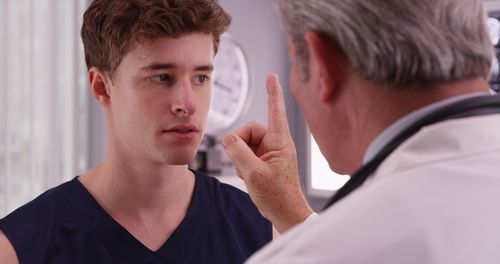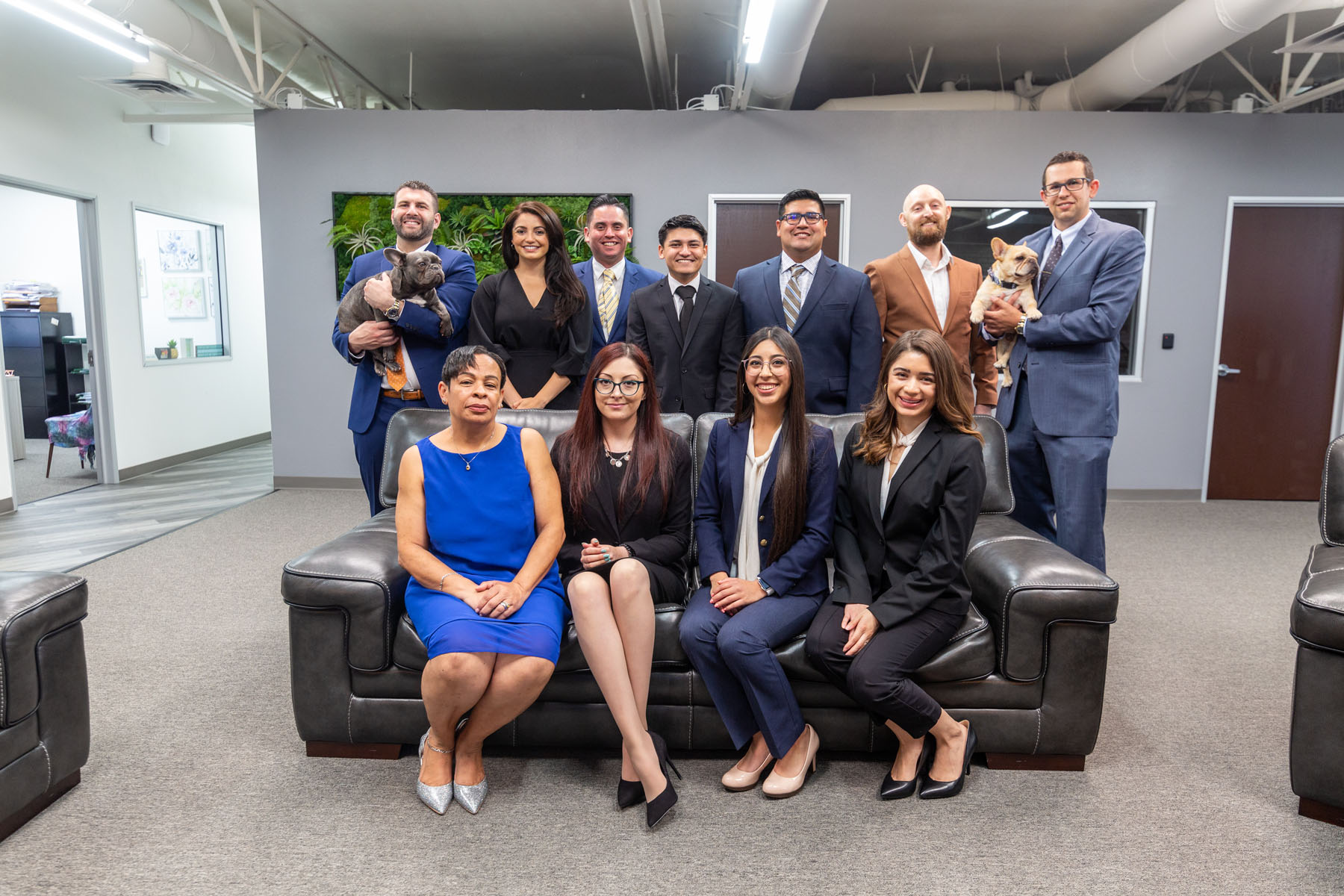Car accidents are a common cause of concussions, a type of traumatic brain injury (TBI). A number of factors come into play when you begin to negotiate a car accident concussion settlement. Concussions vary a great deal in severity. The cost of treatment and the length of time it takes to heal will affect your settlement.
What Is a Concussion?
A concussion is an injury to the brain that results from a bump, jolting, or hitting the head. It isn’t the blow directly that causes the concession. The damage occurs when the motion causes the brain to move quickly back and forth inside the skull.
The movement causes chemical changes in the brain and it sometimes damages brain cells. Although a doctor might diagnose a concussion as mild initially, it can have lasting and serious effects. The impact of a car accident can cause a concussion that doesn’t produce symptoms for hours or even days. You may not have any obvious sign of injury on the outside of your head, making it easy to overlook. Failing to have the condition diagnosed often has serious and lasting consequences. Knowing the signs and symptoms of a concussion will help you seek the right diagnosis if you are injured in a car accident.
Signs & Symptoms of Concussion
There’s a number of signs and symptoms of concussion including the following:
- – Loss of Consciousness
- – Feeling Nauseous
- – Ringing in the Ears
- – Seeing Stars
- – Confusion and/or Loss of Memory
- – Changes in Sleep Patterns
- – Mood Changes
- – Persistent Headaches Including Those Accompanied by Blurred Vision
- – Seizures
Sometimes it’s easier to observe the symptoms of concussion in another person than for them to recognize their own symptoms. If someone else in an accident can’t recall events before or after the accident, moves clumsily, or appears dazed or stunned, they need immediate medical attention. Some people report just not “feeling right” or feeling hazy or sluggish. The potential for a concussion to become serious makes getting medical attention your first priority.
Who Can Get a Car Accident Concussion Settlement?
When you receive an injury that is another person’s fault, it is called a personal injury. It is an injury to your body, and it is separate from property damage claims. If someone else was at fault for the car accident that caused your concussion, you have the right to collect compensation.
The Cost of Treating a Concussion can be extreme and long-lasting. Many concussions progress to chronic conditions such as seizures, frequent or constant headaches, and even the loss of your job. Medical treatment that lasts for months or even years can be substantial.
Once you are diagnosed with a concussion, the next step is to hire a personal injury attorney. They will know how much your car accident concussion settlement is worth. Not only do you need compensation for the medical treatment you’ve already received; you need enough to pay any future medical expenses.
In addition to medical expenses, your attorney can help you get compensation for:
- Loss of Wages Due to Your Inability to Work
- Rehabilitation Expenses
- Emotional Trauma
- Pain and Suffering

Concussions Shown to Increase Your Risk of Developing Dementia
In addition to the common problems associated with concussions, new research shows that there’s a connection between mild brain injuries and the risk of developing dementia. The risk of dementia is 3.77 times higher following a moderate to severe trauma regardless of when it happened during a person’s lifetime.
The research performed by UCSF Weill Institute for Neurosciences and the San Francisco Veterans Affairs Health Care System also found a connection between dementia and those who had lesser traumas such as mild concussions. Those who never lost consciousness but did experience other symptoms such as headaches and loss of memory had a 2.36 times risk for dementia. Those who did lose consciousness were found to be 2.51 times the risk.
Although there’s no definitive path between a mild concussion and dementia, the fact that anyone has that much greater a risk has to come into play. Research has also shown that each repeated blow to the head increases that risk.
Experts point out that while you can’t reverse the impact of a head injury, you can take steps to prevent additional blows. If you’re riding a motorcycle, always wear a helmet. Motorcycle riders are especially vulnerable to impacts and brain injuries.
When riding in a car, always buckle up. Although you can still receive a concussion from a high-speed impact, you can help prevent the likelihood of a direct blow to your head.
The Issue of Fault
Like any accident that is another person’s fault, getting a car accident concussion settlement depends on your ability to prove the other person is responsible. Depending on your state, you may not have to be 100% at fault to collect compensation. Sometimes this makes it even more difficult to prove fault. You can expect the lawyer representing the other driver to argue that you are at least partially at fault for the car accident. You can definitely expect the insurance adjuster from the other driver’s insurance company to point the finger at you. In fact, insurance companies often resort to all kinds of tactics to pay less or not to pay at all.
The nature of concussion and its potential makes it imperative to get the medical attention you need immediately after the accident. Another reason is that it will help protect your personal injury claim. If you fail to get treatment right away, the other side may claim that your inaction led to the progression of your condition. Start treatment right away. Follow your doctor’s advice, even if it means not watching TV or using your phone to text. Keep records for every treatment you receive, your total costs, and your medications. The best way to win the settlement you deserve is to start preparing to prove your case even before symptoms occur.
Although many of these cases are settled before they ever go into litigation, your actions prior to negotiations will have a big impact on your settlement. This is particularly true if you don’t get a qualified lawyer to represent you. From the time of the accident, everything you say and do matters.
What to Do After a Car Accident
You may or may not have symptoms of a concussion immediately after the accident. A good rule of thumb to follow is never to assume you aren’t injured. Don’t say that you are fine or just bumped your head a little. It’s easy to feel empathy for the other driver even though they just caused you harm. A few comforting words can come back later to make it look as though your injury wasn’t real or it was exaggerated.
If you have had a blow to the head but you aren’t experiencing any signs or symptoms of concussion, get medical attention anyway. Document any outward injuries and follow-up if symptoms begin to occur. If you fail to keep a complete record of your injuries, the other side will dispute your claims.
One of the first things on the to-do list after a car accident is to make sure everyone is okay. This is to ensure that anyone needing emergency treatment gets it. What it doesn’t mean is that you should reassure the other driver or anyone at the scene that it was your fault. Anyone who witnessed the accident could end up being your best ally. You don’t need their testimony that you said you were at-fault. You do need someone who saw what the other driver did to cause your injury.
After the accident, the other driver’s insurance company adjuster may try to contact you. They may be prepared to make you a “generous offer” for your car accident concussion settlement. If you already have a personal injury attorney representing you, refer the adjuster to them. Whatever you do, don’t try to negotiate with the adjuster. Their motives are not to give you the money you need and deserve. It’s to save their company as much as possible by paying you less.
Another reason not to talk with the adjuster is that you might say something damaging to your case. They know what to say and the questions to ask to get answers they can use against you. If you don’t have an attorney at this point, it’s time to get one!

Your Car Accident Concussion Settlement and Social Media
Nearly everyone has a cell phone these days. Using yours to gather information after the accident is another of the common tips given. Just make sure you don’t post the pictures and comments about the accident or your injuries on social media.
Attorneys and insurance adjusters know how much people like to share. That’s one of the first places they go to get information. It isn’t the pictures that prove their client is at fault they want to find. It’s the comments that you make about your injuries or, more importantly, the lack thereof.
The fact that concussions often don’t produce initial symptoms makes it especially dangerous for you to talk openly about the accident. It’s too easy to dismiss a serious injury that you don’t know will cost you a great deal in the near future.
Calculating Your Car Accident Concussion Settlement
It’s easy to determine how much money you need to pay your current medical bills or time you have lost from work. More difficult is predicting future medical costs or the extent of your lost wages. If your injury will cause you to lose your quality of life, it’s hard to put a monetary value on it.
Some people recover from a concussion after a few weeks or months. Others take a year or more. For some, the effects are broad and long-lasting. You may have chronic pain and continual suffering. Your outward symptoms may cause you humiliation and embarrassment and have a negative impact on your reputation. If your relationships suffer as a result, you or your loved ones might have the right to sue for loss of consortium.
A personal injury attorney knows the different types of damages that apply to your case. They can help you get the amount of compensation that you deserve. The goal of your car accident concussion settlement is to get enough to achieve as near the same quality of life as possible that you had prior to the accident.
Now that research has proven the connection between concussion and the development of dementia later in life, there’s even more potential damage to worry about. Settling for a lesser amount can lead to a bigger financial struggle later in life.
Why You Need a Personal Injury Attorney
Keeping the right records and knowing what to say and do is just the start to getting your best settlement. The law regarding personal injury cases is very complex. There are time limits for filing a claim and exceptions to some of the laws in place. A personal injury attorney who understands the local law will ensure you follow the right process and do it in a timely manner.
A personal injury attorney handles cases like yours all the time. They’ve seen how seemingly minor concussions lead to serious conditions over time. To choose the right attorney for your needs, look at the attorney’s success record. Although every case is different, this will give you an idea of the range of settlements the law firm is capable of getting for their clients.
If you settle your case out of court, you need an experienced attorney to negotiate a fair settlement on your behalf. If you can’t reach a settlement, you want an attorney who is prepared to pursue your case aggressively. Your best car accident concussion settlement comes from being well-prepared, dotting your “I’s” and crossing your “T’s.” You and your attorney are partners with the same goal in mind; getting you the compensation you need and deserve.
Contact Batta Fulkerson to schedule a free consultation to talk about your concussion case. We’ve recovered millions of dollars for our previous clients. We can get the best results for you, too!




